Here Are the 10 Best Lap Dog Breeds
Are you a snuggler? If you’re looking for a lap dog, here are some go-to breeds.
Are you a snuggler? If you’re looking for a lap dog, here are some go-to breeds.
by Jackie Brown, | March 11, 2025

Christine La / Stocksy
Do you long for a calm, small dog who will happily snuggle up in your lap? The key to finding the best cuddly lap dog is to identify dogs with the right temperament traits. The best lap dogs are generally small, affectionate dog breeds with mellow and friendly personalities — and without excessive energy to burn. Read on to meet some of the best lap dogs, who’ll fit seamlessly into your life, providing endless snuggles and companionship.
Lap dogs can be great choices for many different pet parents, from families to empty nesters, those living in small spaces, or people simply seeking an affectionate companion.
TL;DR: Lap dog breeds are often small and affectionate, and they love being close to their pet parents. Breeds such as Cavalier King Charles Spaniels, Shih Tzus, Chihuahuas, and many mixes are known for their friendly, cuddly natures. These dogs thrive in cozy spaces and make perfect companions for those seeking a loving lap dog. Regular grooming and moderate exercise are essential to their care.
Lap dogs are special canine companions who love to warm your lap and cuddle close. Many dogs enjoy the occasional snuggle, but lap dogs live for long hours spent cozying up to their favorite person — you.
Did you know some breeds are bred to be lap dogs? Every purebred dog had an original purpose, whether hunting or guarding, and some breeds had the sole purpose of being bed warmers and lap companions, often for royals, nobles, or “proper” ladies. Here are a few key traits for lap dogs:
They’re often small: Most lap dogs are small (they need to fit on your lap, after all) and very affectionate. But that doesn’t mean there aren’t plenty of larger dogs who want to be lap dogs.
They’re relaxed: Lap dogs are usually very calm and gentle, with lower energy levels than some other breeds, which make them more likely to nestle up on your lap rather than run laps around the house.
They’re trainable: The best lap dogs also tend to be trainable, because they are attuned to your needs and want to please you.

BONNINSTUDIO / Stocksy
Before we jump into some purebred dog breeds with lap dog tendencies, we need to highlight our favorite lap dog of all: the mixed breed dog. Shelters and rescue groups are full of wonderful small dogs who are waiting to warm your lap. In fact, the best lap dogs for first-time parents are mixed-breed pups. But how do you know if a mixed-breed dog will make a good lap dog?
Look for small, lap-sized dogs with friendly, calm, gentle dispositions and low-to-moderate energy levels. Talk to the shelter staff or rescue volunteers to find out if a dog likes to cuddle or sit in your lap. It’s usually easier to gauge the size, temperament, and energy level of an adult dog rather than a puppy. For instance, senior dogs are often grateful to warm their old bones in a nice, warm lap.
Weight: 5 to 100 pounds
Height: 5 to 30 inches
Search for Mixed-breed dogs for adoption
Small-sized, loving dogs who live to cuddle are perfect for pet parents seeking to adopt a lap dog for companionship, in smaller living spaces, or for a more relaxed lifestyle. Let’s meet some breeds well-known for their lap-loving tendencies. Mixes of these breeds usually make great lap dogs, too.

Irina84 / Adobe Stock
The Cavalier King Charles Spaniel is a toy-sized pup with a sweet disposition and an intense need to be close to their favorite people. Though playful, the Cavalier will be thrilled to warm your lap and turn their loving, soulful gaze your way. Cavaliers are intelligent and eager to please, which makes them a snap to train and a joy to live with. Cavaliers usually get along well with children.
Weight: 11 to 23 pounds
Height: 12 to 13 inches
Search for Cavalier King Charles Spaniels (and their mixes) for adoption

Jarusha Brown / Stocksy
As the world’s smallest breed, the perfectly portable Chihuahua is frequently carried in tote bags or hanging out in laps. These tiny pups form very tight bonds with their humans, so they are happiest when they are close to you. Even though Chihuahuas are easy to hold, they still need sufficient daily time standing on the ground on their own four paws. (Too much carrying can lead to anxiety or fearful behavior.) Chihuahuas can be scrappy and don’t seem to realize how small they are, so keep them safe by not allowing them to tell off bigger dogs.
Weight: 2 to 9 pounds
Height: 6 to 9 inches
Search for Chihuahuas (and their mixes) for adoption

Drazen / AdobeStock
The small, friendly Shih Tzu traces its history back hundreds of years. They were prized pets in Chinese palaces, where they lived pampered lives warming the laps of emperors and other nobility. Today’s Shih Tzu is just as happy to be a lap dog, though they also enjoy walks and plenty of playtime. The Shih Tzu has a long, flowing coat that needs professional grooming and daily brushing. Some pet parents opt for an easy-care “puppy cut,” which requires less frequent brushing. Thanks to their easy-going personality and low exercise needs, the Shih Tzu could very well be called the best lap dog for seniors (or one of them at least). They also love kids.
Weight: 10 to 21 pounds
Height: 10 to 11 inches
Search for Shih Tzus (and their mixes) for adoption

Diego Martin / Stocksy
The tiny, fluffy Pomeranian is happy to lounge like a tiny fox in your lap. This charming breed was a favorite of Queen Victoria, which helped to skyrocket the Pomeranian’s popularity. Pomeranians have long warmed the laps and beds of royals and nobles, and they are pleased to continue with this duty in modern times. Poms are playful, friendly, and engaging companions. Their thick coat needs daily brushing — something that’s easy to do right on your lap.
Weight: 3 to 10 pounds
Height: 7 to 12 inches
Search for Pomeranians (and their mixes) for adoption

Branko Starcevic / Stocksy
It’s hard to say anything negative about the Bichon Frise — these little white dogs are cheerful, friendly, smart, and highly trainable. They love their people fiercely and will happily climb into your lap for a snuggle or nap after a fun play session. Bichons are usually friendly with all people, including kids. It’s impossible to resist petting their dense, curly coat, and they will love the relaxing massage while you cuddle. Bichons need professional grooming and daily brushing. But here’s a bonus: The somewhat hypoallergenic Bichon is one of those lapdogs who don’t shed.
Weight: 6 to 16 pounds
Height: 9 to 11 inches
Search for Bichon Frises (and their mixes) for adoption

triloks / iStock
The tiny Yorkshire Terrier is the perfect size for lap snuggles. Yorkies become very attached to their favorite humans, and want to spend as much time with them as possible. Once the beloved companions to Victorian Era nobility, these toy-sized dogs retain a touch of terrier feistiness, which is softened by their loving and sometimes-silly personality. Their long, silky coat doesn’t shed, but needs professional grooming and daily brushing (less, if kept in a short pet clip).
Weight: 2 to 10 pounds
Height: 7 to 8 inches
Search for Yorkshire Terriers (and their mixes) for adoption

evrymmnt / shutterstock
The teeny, tiny Maltese has been cherished for centuries. They were the prized pets of nobles during the Roman Empire and especially treasured by the elegant ladies who tucked them into their dress sleeves, taking these little dogs with them everywhere. Today’s Maltese is playful yet charming, and takes their job seriously as your constant companion. Their long, silky coat doesn’t shed much, but needs professional grooming and frequent brushing.
Weight: 5 to 13 pounds
Height: 8 to 10 inches
Search for Malteses (and their mixes) for adoption

Sandra Huber / Shutterstock
The Havanese hails from Cuba, where these charming, affectionate dogs had one purpose: to be loyal lap dogs to the island country’s elite and wealthy citizens. Modern Havanese continue to be wonderful lap dogs and endearing companions. Friendly and outgoing, Havanese are super smart and highly trainable. Their long, silky coats need regular brushing and occasional professional grooming, but they are a somewhat hypoallergenic breed because they shed very little. Havanese tend to be great companions for kids.
Weight: 7 to 16 pounds
Height: 8 to 11 inches
Search for Havanese (and their mixes) for adoption

T.Den_Team / Shutterstock
The ancient Pekingese is one of the most famous lap dog breeds. Their original job was to be constant companions to Chinese nobility during the Ming and Qing dynasties. Referred to as “sleeve dogs,” Pekingese were bred to be tiny enough to fit inside large, voluminous robe sleeves and carried around palaces. Today’s Pekingese are a bit larger, but they are still quite calm and affectionate, and excel at their lap dog duties. The long, thick coat of the Pekingese needs daily brushing, and care must be taken to prevent these flat-faced dogs from overheating when exercising outside.
Weight: 6 to 15 pounds
Height: 7 to 8 inches
Search for Pekingese (and their mixes) for adoption
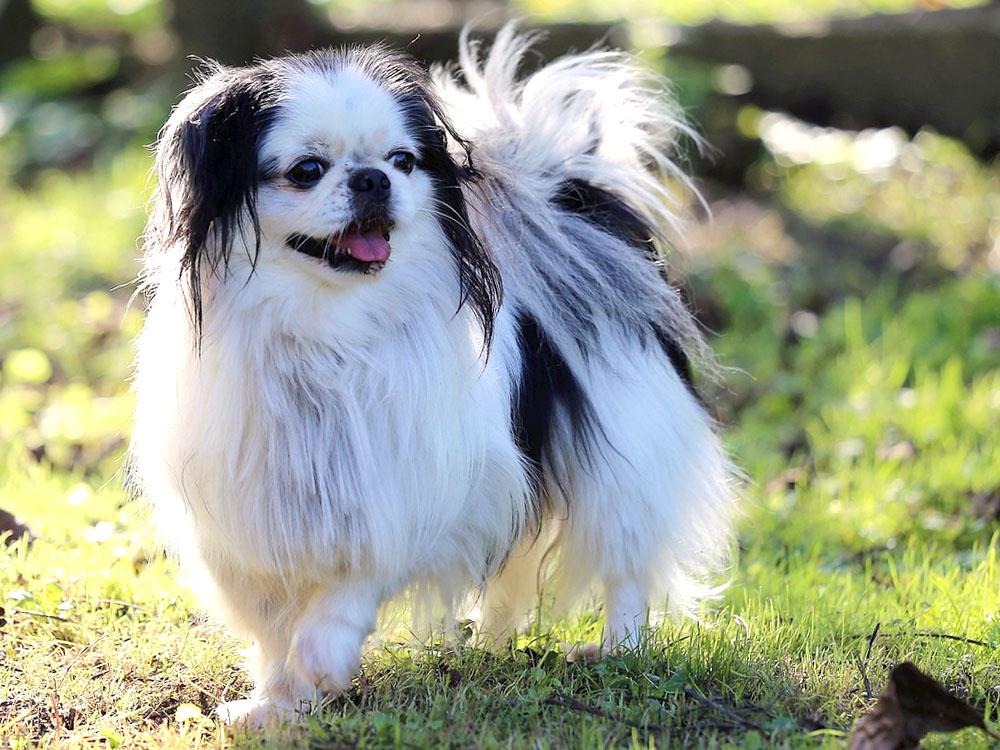
GoranH / Pixabay
The Japanese Chin could be found in Japan as far back as 1,000 years ago, though the breed, which is originally from China, is likely even older than that. These tiny dogs are known to enjoy a pampered life indoors, with personalities that have been described as distinctly cat-like. It should not come as a surprise to learn that the Japanese Chin loves to lounge in the laps of their loved ones, much as they did with Japanese nobles centuries ago. Their long, silky coat is luxurious to stroke, but easy to care for — just brush weekly to remove any tangles.
Weight: 6 to 15 pounds
Height: 8 to 11 inches
Lots of dogs, whether purebred or mixed breed, make wonderful lap dogs. When looking for a lap dog to adopt, consider each dog’s temperament and grooming requirements. Low-maintenance lap-dog breeds and mixes generally won’t need a lot of brushing or professional grooming. All dogs, including lap dogs, need a minimum of one or two 30-minute walks a day. Some lap dogs have a little more energy and will be happiest with families or individuals who enjoy playing with them.
Before bringing home a dog, consider their activity level, grooming needs, temperament, and compatibility with children or other pets to ensure they will fit seamlessly into your family. Lap dogs are generally small and do great in apartments and smaller homes without yards.
As with all dogs, lap dogs need regular care (including grooming, exercise, training, and veterinary care) to keep them healthy and happy in their new homes.
Grooming: The frequency of brushing and bathing depends on the type of coat. A lap dog might need brushing daily, weekly, or a few times a week. Some lap dogs might also need clipping from a professional groomer.
Exercise: All dogs need exercise, even small, lower-energy dogs like lap dogs. A 30-minute walk once or twice a day will keep most lap dogs happy. Some energetic lap dogs also enjoy brief play sessions at home a few times a day.
Health: All dogs should visit the veterinarian at least twice a year for checkups and routine care. Staying on top of health issues leads to faster, easier treatment.
Training: Lap dogs need basic obedience training, just like bigger dogs do. Though you might be tempted to carry and cuddle them all day, make sure your lap dog spends plenty of time with four paws on the floor, so they remember how to feel confident and independent.
Yes, lap dogs tend to be good for apartments thanks to their small size, lower energy and exercise needs, and preference for companionship. Lap dogs usually don’t like being left alone for long hours, but their small size makes them portable so you can take them with you.
Some of the most popular lap dog breeds include the Pekingese, Shih Tzu, Havanese, Maltese, Yorkshire Terrier, Pomeranian, Bichon Frise, Chihuahua, Cavalier King Charles Spaniel, and Japanese Chin. Many of these breeds’ original purpose was to be lap dogs.
No, most lap dogs do not require a lot of exercise because they tend to be small and have less energy than some bigger dog breeds. That said, all dogs, even lap dogs, need regular walks. One to two 30-minute walks a day is usually perfect for lap dogs.
Care for a lap dog is the same as care for most dogs. Lap dogs need grooming, exercise, training, and veterinary care. Some lap dogs need more grooming than others, depending on their coat type.
Some lap dogs are good with children. But others are small and fragile, and might not be safe around very young kids, especially if they are rambunctious.
Yes, most lap dogs are easy to train. This is because the best lap dogs are not just small, but affectionate and willing to please. Dogs who want to please you tend to respond well to positive training methods like clicker training.
Wyett, Jodi L. “The Lap of Luxury: Lapdogs, Literature, and Social Meaning in the “Long”; Eighteenth Century.” Lit: Literature Interpretation Theory, vol. 10, no. 4, 17 Dec. 1999, pp. 275–301, https://doi.org/10.1080/10436920008580249.
Martínez, Rafael M, et al. “Who Let the Dogs In? Lap Dogs, Canid Sacrifices and Funerary Practices in the Roman Cemetery of Llanos Del Pretorio (Cordoba, Spain).” Archaeological and Anthropological Sciences, vol. 12, no. 4, 10 Mar. 2020, https://doi.org/10.1007/s12520-020-01033-1.
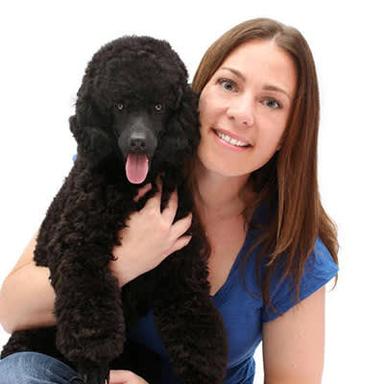
Jackie Brown lives in sunny Orange County, CA, where she works as a freelance writer and editor. When she’s not on deadline, you can find her paddling her outrigger canoe in the Pacific Ocean or hiking in the foothills with her miniature poodle and two young boys.
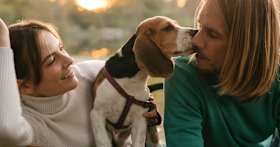
Breed Info
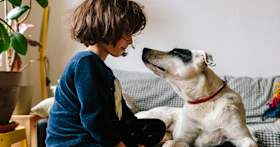
Breed Info
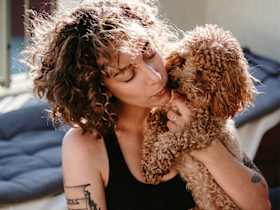
Breed Info
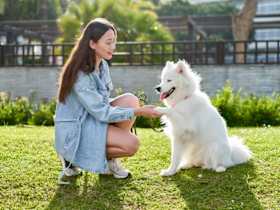
Breed Info
Looking for a dog who rocks a clean, all-white coat? These dogs serve up style, fluff, and serious snowball energy.
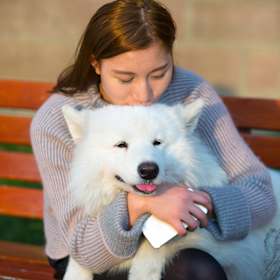
Breed Info
One of the joys of adopting a dog is sinking your hands into their fluff, and it’s totally okay to admit that.
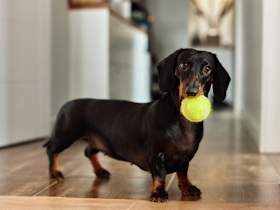
Breed Info
Are Dachshunds the worst breed ever? No — but they get a bad rap. There’s a lot of charm behind those quirks. Learn why they might just be the best breed ever.
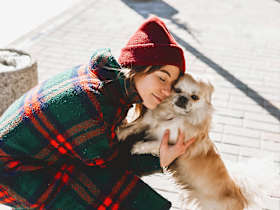
Breed Info
These mellow pups are here to match your homebody energy.
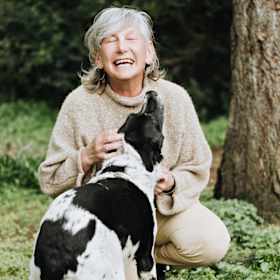
Breed Info
Because you’re never too old to find your bestie.
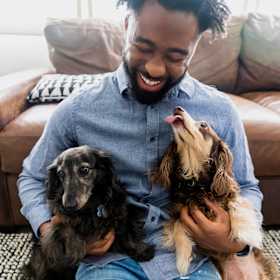
Breed Info
These dogs turn heads everywhere they go — just be ready to brush (a lot).